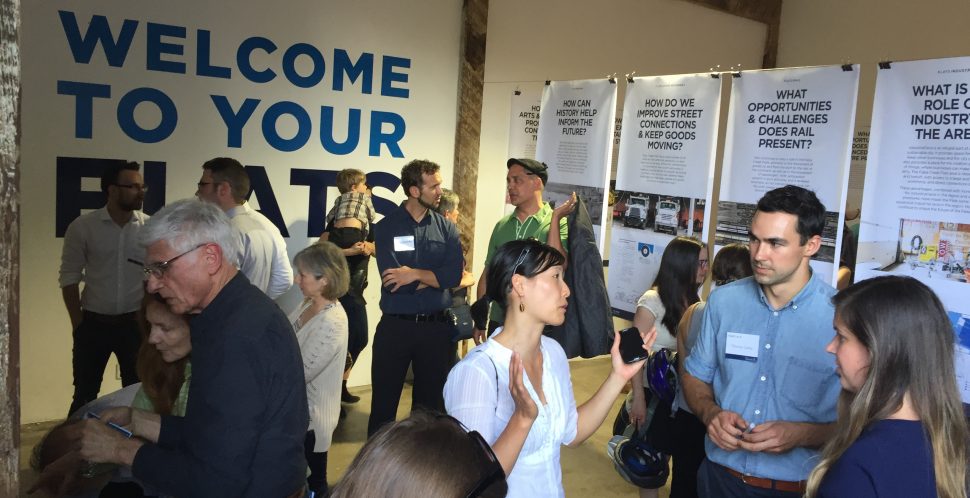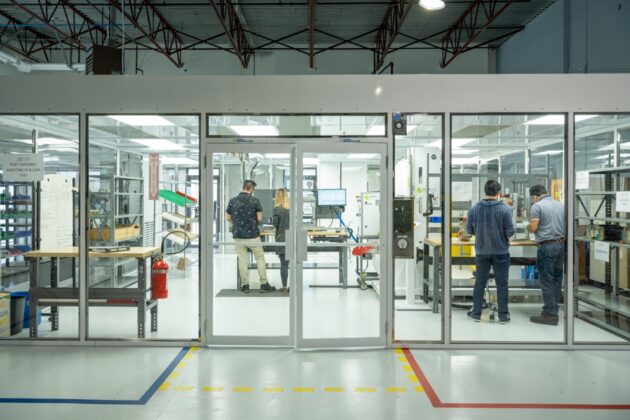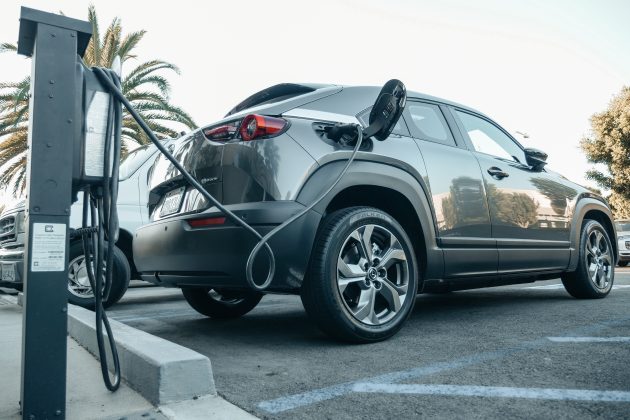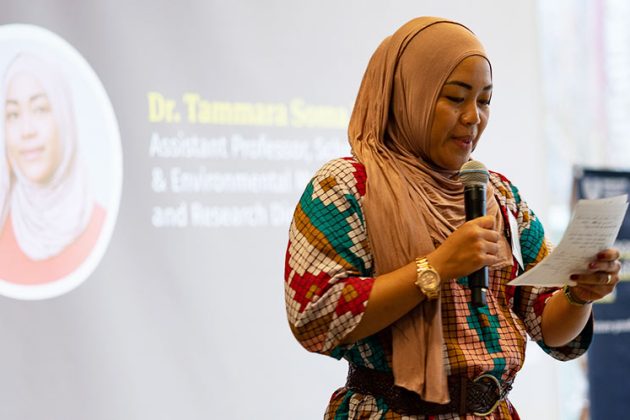At the Circle Studio space in the False Creek Flats this week, a crowd gathered to eat free tacos from a local food truck, drink Flats-brewed beer and learn about what’s happening with the area’s culture, food, transportation, economy and land use – and what could happen with the help of passionate city residents.
The event, hosted by the Vancouver Economic Commission (VEC) and the City of Vancouver on Wednesday night, marked the launch of a series of workshops for neighbors and local False Creek Flats businesses to provide input to City staff about their vision for the area’s future. As with other planning processes, the City will incorporate that feedback to help guide a long term zoning and land use plan for the area.
Unlike other planning processes though, the City has already set out the added, ambitious goal for the Flats – to make it the greenest place to work in the world.
To do this, the City brought in the VEC for its deep knowledge of and experience in green economic development – as well as of the world of business startups. For the past year, we have been using our direct, on-the-ground approach to start a series of strategic conversations and projects in the area that will help guide and feed into the City’s long term plan. The approach is similar to that now widely used by startups to “test while they build,” increasing the chances of success along the bumpy road to market.
The Flats has its share of bumps to overcome, too. The area has a huge number of stakeholders, and transforming it into the greenest place to work requires the collaboration of economic developers, urban planners, designers, engineers, educational institutions, businesses and social enterprises, to name a few. Initial research showed that changing the Flats would require leadership and accountability, the right entry points for projects to gain traction, and significant engagement of the business community.
In order to help transform the Flats into the greenest place to work, Pietra Basilij, the VEC’s Sustainable Community Development Manager, led targeted conversations with businesses and uncovered three major economic development actions:
- Spur the shift toward a more circular economy
- Support smart logistics
- Reduce barriers to innovative green business
The VEC further convened groups of businesses, community organizations, and thought leaders around these topics to uncover some common challenges and key opportunities in these areas.

One of those challenges was building demand for recovered materials. As result, we applied for and won a Partners4Places grant for the city-wide Upcycle Design Project, which has a mission to do just that.
In addition to highlighting impactful projects to test and learn from, the VEC’s conversations with businesses will also directly shape the City’s overall planning for the area, and build engagement in and support for the process. While the official planning kickoff was at Circle Studio, the VEC started to engage area businesses in 2013 by showcasing and demonstrating sustainable products, services and business models, andby spreading a cohesive message about green enterprise opportunities in the area, innovative practices already underway and the vision for the future of the Flats.
The VEC’s partnership in the planning of the Flats will continue to build on the work its done so far to target three types of stakeholders:
- Key Community Anchors: larger businesses with a greater capacity to affect change
- Champions: businesses with strong existing networks or leadership
- Green Innovators: businesses that already operate under a strong environmental ethos
Those conversations, and the projects they inspire, will be critical in shaping the City’s long-term planning and implementation process moving forward.
You can participate in the City’s planning process, check out the Flats website and add your story, follow the #UpcycleVancouver project via social media or check out our website or social media to get involved.



